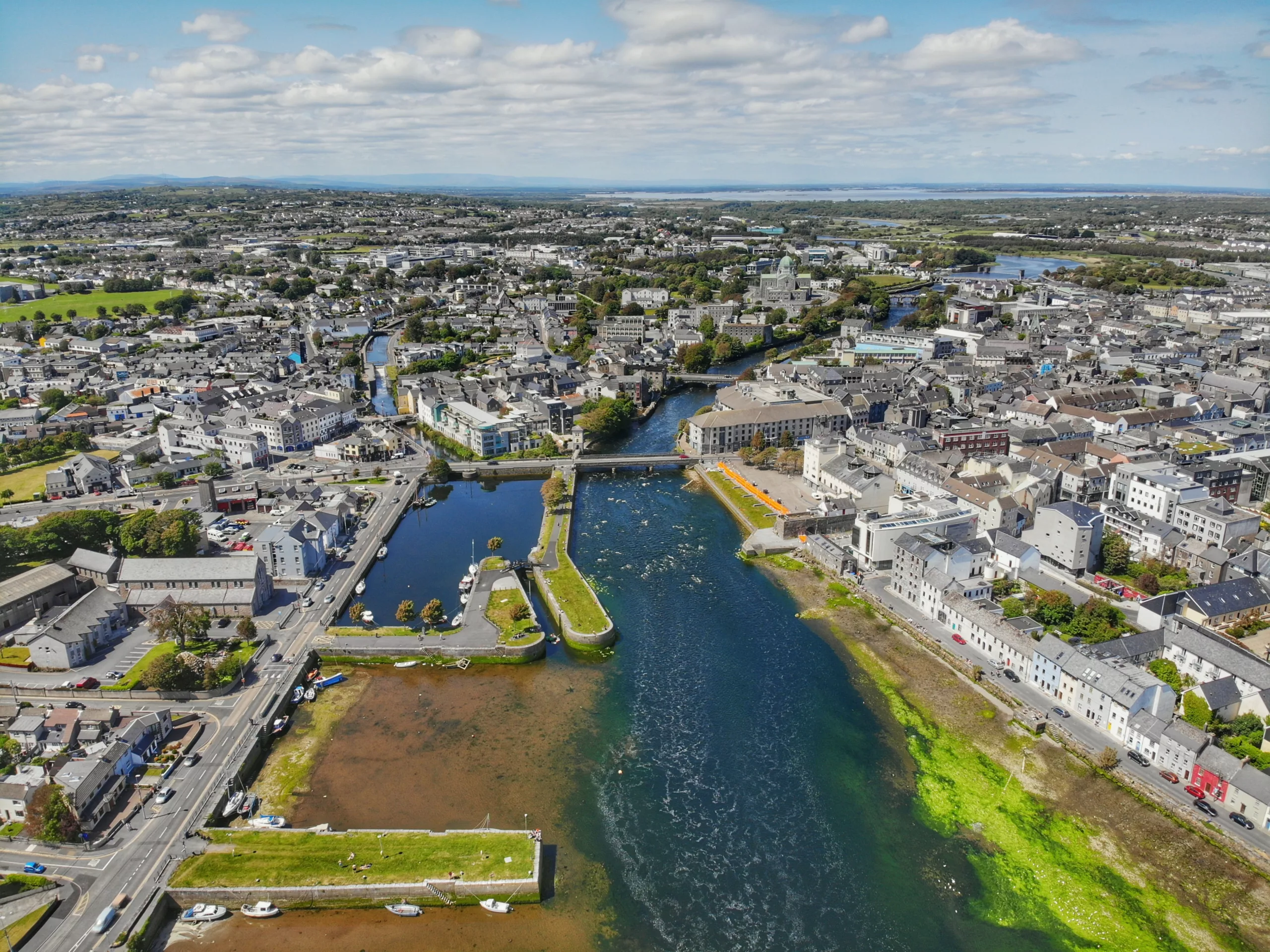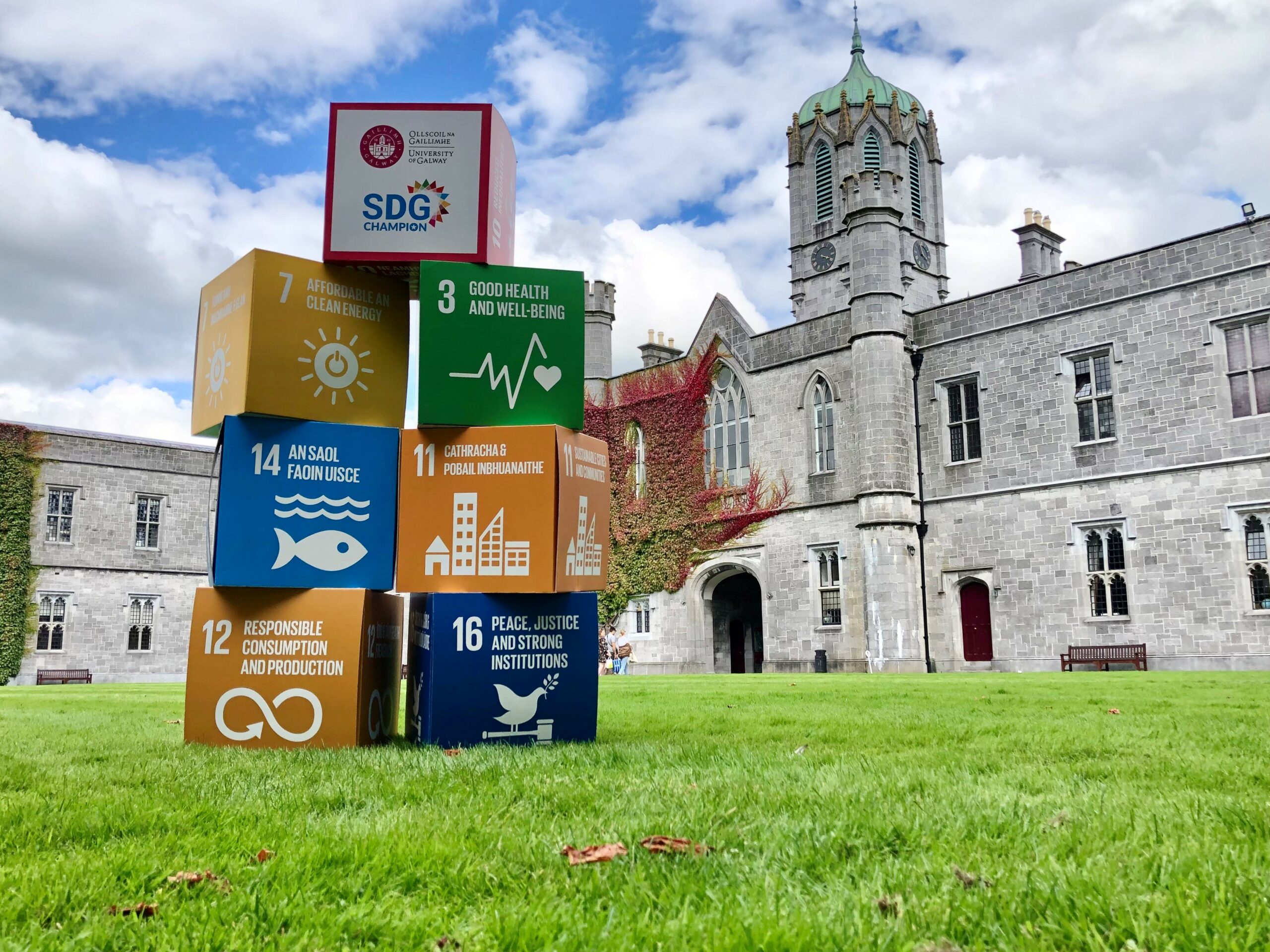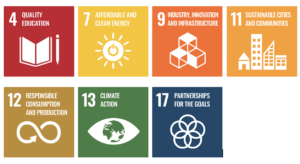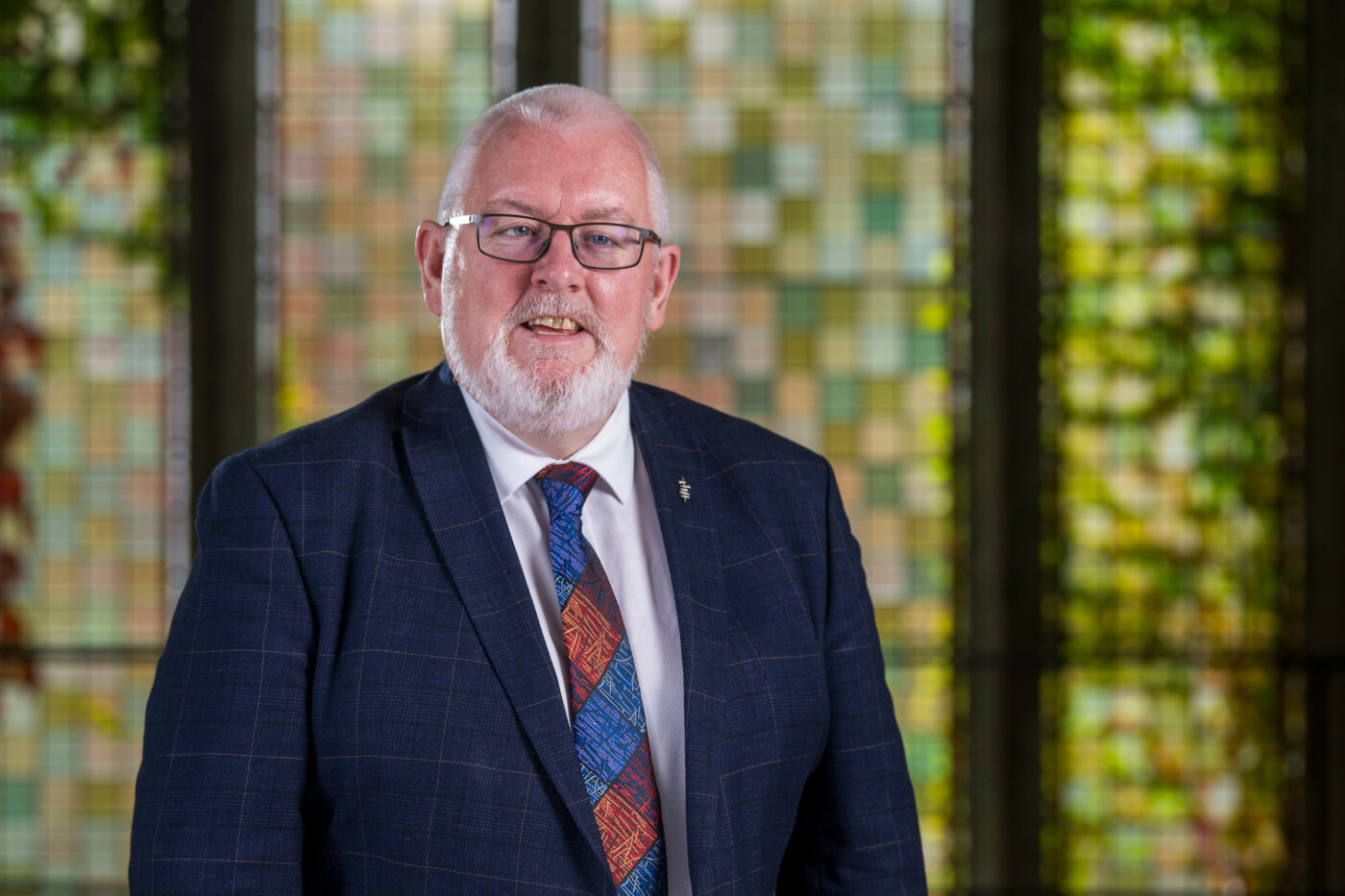
Sustainability is crucial for universities to fulfil their role as responsible institutes for the public good. Deputy President and Registrar, University of Galway, Prof. Pól Ó Dochartaigh, reflects on our achievements and learnings thus far, as we embark on a transformative journey towards a sustainable Galway, for a sustainable world.
It is almost too obvious to say that sustainable living and sustainable development are critical not just to the survival of humankind but to the survival of the planet. We cannot continue to consume resources at the current rate. Yet sustainability is not only about survival, with all its apocalyptic overtones; at its core it is about championing respect. Respect for each other, respect for our environment, respect for diverse cultures, eliminating poverty and hunger, respecting human rights, including gender, racial and cultural equality, creating a clean environment in which all human beings can fulfil their potential. Critical to all of this is the fundamental element that is at the core of our own existence as an institution: excellent education, rooted in excellent research.
Many people in the humanities and in wider society, when they hear the word “sustainability” think of energy efficiency first and foremost. More miles to the gallon out of the car, or travel by train and bus, or switching off lighting and heating when they are not in use, or using the eco settings in washing machines. And that is not a bad starting point, but it is a limited one.
To be sure, energy efficiency is an essential component of sustainability, and it is an area in which University of Galway has made great strides for at least a couple of decades now.
Over a ten year period when this university was putting up a significant number of new buildings, our footprint increased by 30% while our energy consumption dropped by 30% – the net effect being that we then progressed to using approximately half as much energy per square metre as before.. That is a testament to the guiding design principles embraced by our Buildings and Estates teams under the leadership of former Director, John Gibney and others, continued today under Director Denis O’Connor and his team. Their successes and awards in this area attest to this truly outstanding work.
As a university we are much more than just an estate, however. We wrote back in 2017 in our inaugural sustainability strategy that: “Landscape, ecosystems and biodiversity are of significant environmental, economic, social and health value to students, staff and the wider community.” That holistic approach is essential, indeed existential. We take the UN SDGs and apply them to our teaching and learning, our research, our behaviours, our interactions and how we cultivate a biodiverse campus.
Outstanding research and teaching are what makes us a university, and sustainability and the full spectrum of the UN SDGs are part of our research and teaching. Their importance in both domains continues to grow. When I came to the university in 2014 I asked senior colleagues at an away day to identify any big challenge that they felt we needed to invest more effort and, pardon the pun, energy in. It was Professor in Earth and Ocean Sciences and then Director of the Ryan Institute Colin Brown who spoke the key word to me. I asked him to consult colleagues and come back with an initial plan for sustainability, which he did. It was clear that a lot of great work was already being done here, but needed pulling together in a strategic way. The CUSP was born, the Community and University Sustainability Programme, rooted in the commitment over and above the day job of academics, professional support staff and, crucially, students right across the University. We found funding for a Sustainability Officer, and Michelle O’Dowd Lohan has filled that role with aplomb since 2019, having spent five years with the University before that as a sustainability research associate. The work of the CUSP has been led by a committed group of work package leaders, going above and beyond their day jobs for years now. We needed to formalise support for them.
The first sustainability strategy, for the period 2017–2020, had at its core a model that we call “Learn – Live – Lead”. Collaborating to expand our sustainable research footprint is one aspect, taking some of our inspiration from such outstanding projects as the Geec, the Galway Energy Efficient Car. As we research, we learn to live better. Our research informs our teaching; our students benefit. Our students can become the leaders of tomorrow.
We built on that inaugural strategy with a second strategy for the years 2021–25, planning for a Sustainability Office. This step allowed for a properly resourced team to influence the work, at an institutional leadership level, ensuring sustained support for the actions colleagues had already been undertaking for years. In developing the University Strategy for 2020–25 the students had been very vocal on the subject of sustainability and it became one of our four core pillars. When we then developed an academic strategy for the years 2021–26, we put sustainability in the curriculum at the heart of it. The path was clear.

If we gain recognition and awards for our achievements, it is not because we seek “baubles” but because we seek continually to improve ourselves. Recognition sets examples, inspires others and motivates us to do more. The Times Higher Education has placed us in the top 50 in the world for sustainability for the past two years. We are the only university in Ireland to be designated a national sustainability champion for 2023–24. The work by Dr Una FitzGerald, School of Natural Sciences, on Green Lab certification has inspired institutions across Ireland and beyond to make their behaviours more sustainable. When a team led by Head of Building Services, Energy and Utilities, Michael Curran, won the Energy in Buildings Prize at the Sustainable Energy Authority of Ireland Awards 2023 for the Áras De Brún Pathfinder Project, it recognised a whole team, an ethos, and it inspires us to achieve more.
We are building success in this space. In January 2024 a new Director of Sustainability, Dr Richard Manton, will join the University. He will lead an office that will include our Sustainability Officer, a new Sustainability Accountant and administrative support, working closely with two new lecturers in Sustainability and Education for Sustainable Development, based in the Centre for Excellence in Learning and Teaching (CELT), who will work with colleagues across the University to boost the presence of the SDGs in the curriculum. We are setting ourselves ambitious targets in our Performance Agreement with the Higher Education Authority because we have a high aim: that in a few short years’ time every single student graduating from University of Galway will have been confronted with diverse aspects of sustainability and the UN SDGs in their degrees. Galway graduates will have learned about sustainability, learned to live by it, and will go out to lead as global, responsible and inspiring citizens. That is where our sustainability journey is taking us. To the better of all.
SDGs discussed in this article:

Profiles

Professor Pól Ó Dochartaigh is Deputy President and Registrar of the University. He is a member of the University Management Team, Academic Council and formerly of the University’s Governing Authority, Údarás na hOllscoile Pól role includes responsibilities for academic strategy, academic promotions, and academic quality. A native of Belfast, Pól holds a BA (Hons) in German from the University of Wales (Cardiff) and a BA (Hons) in Irish from Ulster University, as well as a PhD and a DLitt in German from Nottingham University. He is a member of the Royal Irish Academy, a Fellow of the Royal Historical Society, a Fellow of the Higher Education Academy and a member of the Senate of the NUI. He has served as President of the Association for German Studies in Great Britain and Ireland (2011-14) and Chair of the Royal Irish Academy's Committee for Modern Language, Literary and Cultural Studies (2004-9), and Chair of the Board of the CAO (2018-22). Pól has worked on the legacy of the Holocaust, the German involvement in Celtic Studies and, more recently, on Jews in Irish literature and history. He has published five monographs, seven edited collections and over forty articles and chapters.